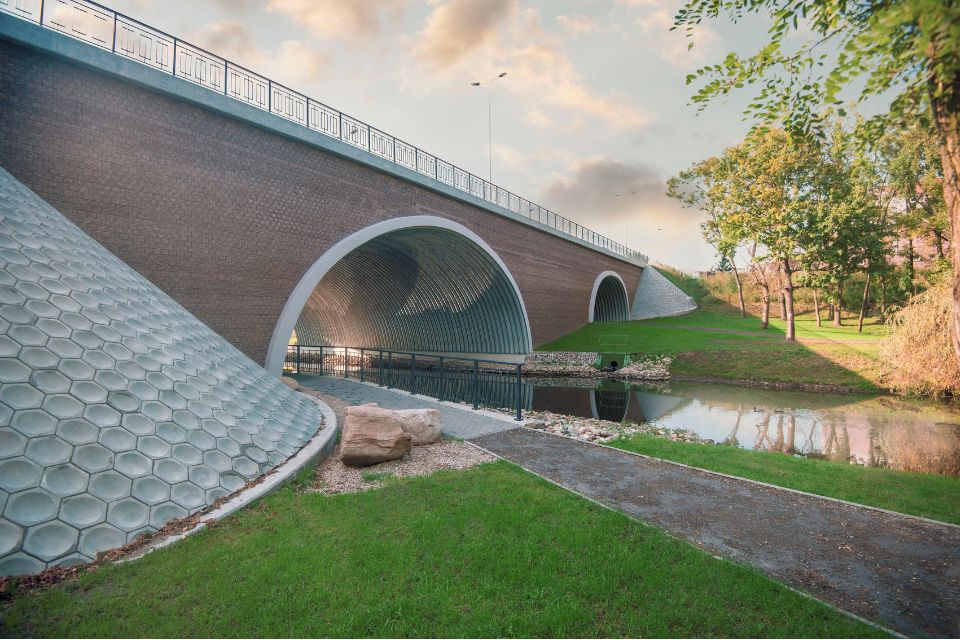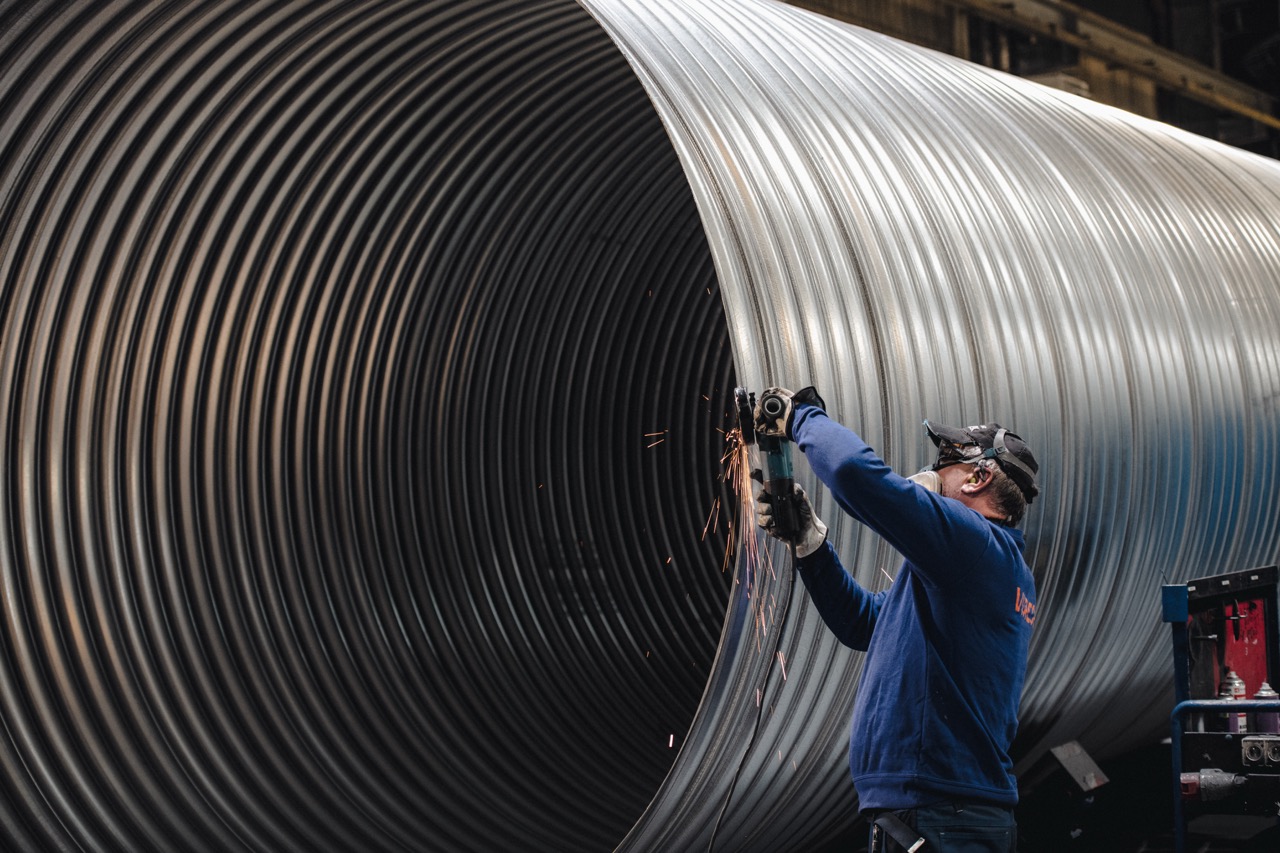Steel does the job with less. An ISO‑reviewed 2020 comparative life cycle assessment (LCA) of stormwater pipes, conducted for the Corrugated Steel Pipe Institute in North America, looked at a large, corrugated steel pipe (CSP, 1,800 mm) versus a typical reinforced concrete pipe (RCP) of the same size, each designed for a 75‑year service life. The steel solution outperformed concrete on every environmental metric.
Here’s why steel wins for Infrastructure and Industrial applications:
- Lower mass, lower impact: CSP is about 85 kg per metre vs roughly 2,690 kg per metre for concrete. Less weight means fewer raw materials, lower energy in manufacturing, and reduced fuel for transport and installation, which is key for drainage systems, culverts, and pipeline projects.
- Lower carbon footprint: The study found about 75% less CO2e for steel (around 2.0 vs 8.8 tonnes CO2e per 11.8 m section). Smog, acidification, eutrophication, and fossil fuel use were also much lower.
- Recyclable and circular: Steel’s properties don’t degrade when recycled. Galvanized steel pipes (HDG) become valuable scrap at end of life and are routinely collected and recycled, delivering real circular‑economy benefits that the LCA counted.
- Durable by design: With the right coating and, where needed, invert paving, corrugated steel pipes can meet the common 75‑year design life for stormwater drainage and culvert infrastructure. Sensitivity tests for deeper installations and repairs still favored steel.
The takeaway for engineers, owners, and contractors evaluating steel solutions for infrastructure: when you need performance and a lower environmental impact, choose steel and specify it well. Match coatings to site conditions, plan efficient logistics, and ensure end‑of‑life recycling. You’ll get reliable stormwater and industrial pipeline performance with a smaller footprint and a truly circular material stream. If you’re comparing CSP vs RCP for drainage, culverts, or industrial utilities, this LCA shows why steel is the smart, sustainable choice.

